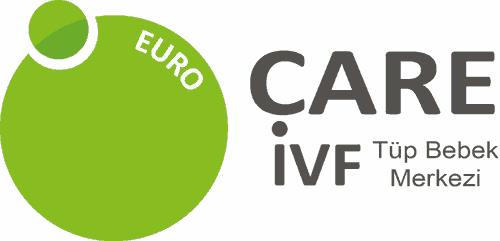 There are many reasons why women decide to delay parenthood until their late 30s or 40s. These may include education, career, desire to find the right partner and reaching financial security. While the average age of first-time mothers has increased on a global scale, fertility still hasn’t changed — women do experience a decrease in their reproductive potential after the age of 35. That being said, their chances of conceiving a healthy child also go down.
There are many reasons why women decide to delay parenthood until their late 30s or 40s. These may include education, career, desire to find the right partner and reaching financial security. While the average age of first-time mothers has increased on a global scale, fertility still hasn’t changed — women do experience a decrease in their reproductive potential after the age of 35. That being said, their chances of conceiving a healthy child also go down.
However, with the advances in reproductive medicine, many women manage to get pregnant. From sophisticated genetic testing techniques to fertilizing eggs in vitro (outside the female body) to controlling the factors that lead to a successful pregnancy, in vitro fertilization (IVF) is one of the most advanced methods of assisted conception that give hope to many women over 40 to have a baby.
Facts about getting pregnant after 40
Ovarian reserve decreases over time
All women are born with a fixed number of eggs in their ovaries (also called ovarian reserve) which declines as they get older. There are approximately 500,000 eggs in female ovaries at the time of puberty. This number slowly drops to around 1,000 eggs by the time a woman hits menopause.
Roughly 1,000 eggs are lost each month which is part of the aging process. This means that a woman in her 40s has significantly fewer eggs than a woman in her 20s — except for women with ovarian malfunction or premature depletion of their egg supply.
Miscarriage increases with age
Age greatly affects the quality of eggs, making them more prone to chromosomal abnormalities after the age of 35. Poor-quality eggs lead to poor-quality embryos, which may fail to implant in the womb, which often results in a miscarriage. Older eggs also increase the risk of birth defects and congenital diseases that may impact the child’s health and development.
IVF over 40: your best shot at getting pregnant at an advanced age
Women who prefer getting pregnant with their own eggs but cannot do so the natural way are offered in vitro fertilization (IVF). This assisted reproductive treatment involves stimulating the maturation of multiple eggs, retrieving the mature eggs from the woman’s ovaries and fertilizing them with sperm. At euroCARE IVF, we apply the intracytoplasmic sperm injection (ICSI) method to fertilize eggs by injecting sperm into each egg. Then fertilized eggs grow in a culture medium for 3 to 5 days. The embryo(s) are either transferred to a woman’s uterus or frozen for future use.
Because women over 40 years of age often have very few eggs, we may prescribe higher doses of medications to get a larger quantity of eggs for retrieval. In addition to this, we may also advise patients of advanced reproductive age to have their embryos screened for chromosomal conditions before transfer — a procedure called preimplantation genetic screening (PGS). Not only this technique ensures healthy, disease-free embryos, it also allows parents-to-be to choose the sex of their baby (gender selection).
Alternative treatment options
When IVF with your own eggs is not a viable option, we recommend other techniques to ensure pregnancy success, such as:
Tandem IVF
If your eggs are of poor quality, there’s a low probability that your cycle will result in a successful pregnancy. For this reason, we often recommend Tandem IVF, which is a combination of IVF with your own eggs and IVF with donor eggs. This treatment option is also suitable for women after the age of 40, as well as women with a history of failed IVF cycles and a low ovarian reserve.
In a Tandem IVF cycle, the donor eggs are used as a backup plan only when the patient’s own eggs do not produce good-quality embryos. Both you and the donor go through an ovarian stimulation phase in which multiple eggs are developed.
Once eggs reach maturity, you and the donor will undergo an egg retrieval procedure. Each set of eggs is then fertilized and embryos are grown in a lab for 3 to 5 days. Embryos are then evaluated based on their quality and appearance and the best one(s) are chosen for transfer. Tandem IVF has success rates similar to those of egg donation cycles.
Egg donation
With a huge database of pre-screened donors and a success rate of over 80% per cycle, IVF with donor eggs is one of the most successful assisted reproductive treatments today. Women with poor-quality eggs, damaged ovaries (or without ovaries), genetic disorders, as well as women with multiple failed IVF cycles could all benefit from this treatment option.
Undergoing egg donation in North Cyprus requires the synchronization between the menstrual cycles of the donor and the patient (also called recipient). The donor will begin stimulation injections to develop multiple eggs for retrieval. Once eggs are retrieved and fertilized, you’ll start a course of tablets to prepare the uterus to accept the embryo(s). Twelve days post transfer, you’ll do a hCG test to confirm pregnancy.
Prenatal tests during pregnancy
Prenatal tests can help detect health problems that could affect pregnant women or their babies. These are divided into two categories:
Prenatal screening testing
Women who get pregnant after the age of 40 are recommended to have prenatal screening to make sure there are no birth defects. A common prenatal screening test is the cell-free fetal DNA that checks for chromosomal defects (e.g. Down syndrome, Patau syndrome, Edward’s syndrome). In the second trimester of pregnancy (between week 14 and 18), a blood sample is taken from the mother to check for chromosomal diseases and birth defects like spina bifida.
Prenatal diagnostic testing
Women with a previous pregnancy affected by Down syndrome or birth defects, as well as women with a family history of a genetic disorder should have prenatal diagnostic testing. There are three types of prenatal diagnostic tests:
Chorionic villus sampling
Chorionic villus sampling (CVS) involves collecting a tissue sample from the placenta to check for birth defects and certain genetic conditions during pregnancy.
Amniocentesis
Amniocentesis uses a small sample of the water surrounding the baby (also called amniotic fluid) to see if there are any abnormalities present in the developing fetus. During the procedure, it’s also possible to determine the sex of the baby.
Ultrasound
Ultrasound (also called a sonogram) provides information about the baby’s health and development in the 18th to 20th week of pregnancy. The test includes checking the baby’s heart, limbs, abdomen, bones, brain, spine and kidneys.
Tips for getting pregnant after 40
- Get your ovarian reserve checked to understand your fertility status.
- Take care of your underlying medical conditions which may affect your chances of having a baby.
- Take a multivitamin with folic acid to help promote normal fetal development and growth.
- Achieve a normal body weight. Make sure you eat a well-balanced diet and exercise regularly.
- Change your unhealthy habits (e.g. smoking, high caffeine intake, alcohol consumption).
- Lower your stress by practising relaxation techniques, such as yoga, meditation, deep breathing and acupuncture.
Age is not a limit — start your journey to parenthood today!
With so many available treatment options today and high success rates, becoming a mom in your 40s may be difficult but it’s definitely possible and safe.
With a treatment plan that is tailored to your individual needs, the euroCARE IVF clinic is able to give you the best possible chance of pregnancy success. If you are over the age of 40 and have been trying to conceive for six months or longer, schedule a free video consultation with the euroCARE IVF fertility doctor to determine which fertility treatment is right for you.
